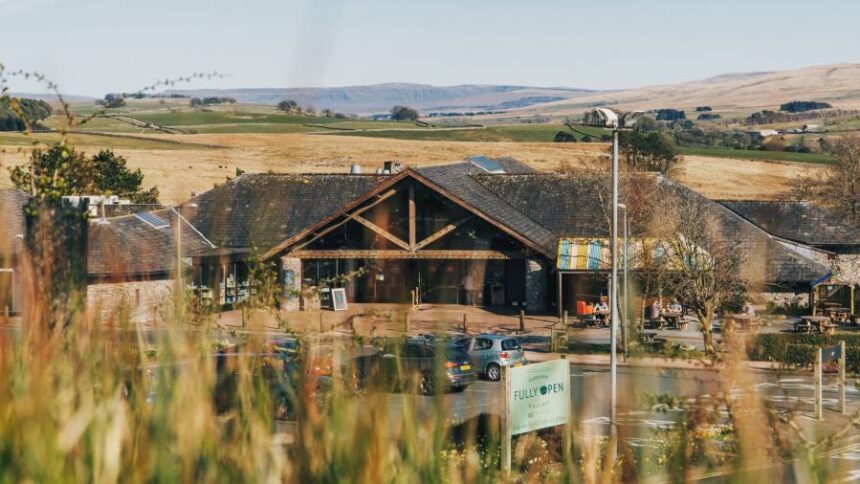Receive free Travel updates
We’ll send you a myFT Daily Digest email rounding up the latest Travel news every morning.
Most motorway services are an uninspiring pitstop of fluorescent lighting, petrol filling stations and fast food. But in Cumbria’s Lake District, Tebay Services is a destination in its own right: more than four million people visit every year.

Opened in 1972 on the northbound carriageway of the M6, Tebay was Britain’s first – and remains one of the only – independently owned, farmer-run services. Set amid the rolling fells of Shap, the building is a world away from traditional boxy, prefabricated motorway stop structures, having been built from local stone and slate. Outside is a lake with resident ducks and swans, and in the car park a coffee truck serving artisan brews. Sarah Dunning, Tebay’s chair and second-generation proprietor, describes it as “an escapist oasis where you can no longer hear the motorway”. On the road to elsewhere, “customers feel like they’ve landed somewhere”.


The mood continues inside: there are no chain outlets here. Instead, travellers refuel on “proper food” – think homemade shepherd’s pie, buns stuffed with locally farmed bacon and Sunday roasts. There’s a butcher’s counter selling whole racks of lamb, Cumbrian-style Camembert at the cheesemongers, and locally sourced cupboard goods including dried spelt pasta, jams and a banana chutney by Penrith-based Mr Vikki’s (excellent slathered on a ham sandwich). The shop also stocks candles (Fellside), hand-carved chopping boards (Hampson Woods) and ceramics from nearby makers.
The idea for Tebay was born when the Department for Transport announced plans to build the M6 and put a compulsory purchase order on the majority of Dunning’s parents’ farmland. Back then, service stations were all run by oil companies that would bid for ownership of sites: none wanted Tebay. “I imagine they all looked at Shap Fell and thought, ‘This location has no prospects,’” laughs Dunning. “My parents saw an opportunity literally on their doorstep.” After winning the bid to operate on the site they joined forces with Birketts, a local bakery with the necessary hospitality experience, and opened as a refuel site with a small café.

A southbound site followed in 1992, and today Tebay employs around 400 staff. The remaining farmland, meanwhile, is run by Dunning’s sister Jane, with most of the sheep supplied to Tebay for the café and butcher’s. Sheepskins are turned into rugs and footstools, and sold in the shop. “Most butchers just buy in the cuts they know will sell, but we have to be innovative and make the most of every bit of the animal. The sheepskins are really an emblem of what we’re about,” says Dunning, who sources much of the services’ produce from its onsite garden.


The lifestyle section is stocked with a similar ethos. Tebay works with around 80 producers within 30 miles, offering colourful “Westmorland” socks using wool from the farm’s sheep, bespoke lambswool knits by Harley in Scotland, Anglepoise lamps in limited colourways, and hats and bags by Kendal-based Molly Sellars, who recycles the fabric from abandoned tents.
Travellers tend to dawdle at Tebay. “A lot of people factor us into their journey; they’ll get up early to have a celebratory bacon and egg breakfast here,” says Dunning. “From the beginning, my parents were building a local business, and at the heart of that is people. Tebay is a community. And more than ever, people want to experience that.” Stop by the lake and smell the coffee.
FT Weekend Festival

FT Weekend Festival returns on Saturday September 2 at Kenwood House Gardens, London. Book your tickets to enjoy a day of debates, tastings, Q&As and more . . . Speakers include Leïla Slimani, Greg James, Rachel Reeves, Jesse Armstrong and many others, plus all your favourite FT writers and editors. Register now at ft.com/festival.








